Introduction
C.E.W. Dobbs grew into adulthood in Portsmouth, Virginia just as the events leading to the Civil War were brewing. While doing a general internet search on him the other day, I found a small blurb that announced that he had been arrested by a general because he was considered to be a rebel preacher. I couldn’t get any more information from the internet because there was a warning sign below the entry that said the site was corrupted and could give my computer unwanted viruses.
Undaunted and with my curiosity peaked, I got on the phone and called the Court Street Baptist Church and told the receptionist that I was the great-great granddaughter of C.E.W. Dobbs, a former preacher there, and I wanted to know if they had a church historian. She said that there was no church historian but she could let me speak to the current pastor, Dr. Wilbur Kersey. Soon, a gentle southern voice appeared on the other end of the telephone line and I commenced to tell my story.
Dr. Kersey informed me that they had a history book for the church and he would look in it to see if there was a reference to C.E.W. Dobbs’ arrest. He put the phone down and I waited with baited breath to see if we could solve this new mystery.
Soon, he returned, and I heard him say, “Hmmm...we have it. It’s true!”
He gave me the gist of the article and agreed to send me a copy of it.
A few days later, I received a copy of pages 46 and 47 of this book. It is transcribed below.
All I can say, is our ancestor was quite a guy!
Transcript
When, in the spring of 1862, General George McClellan landed 100,000 troops on the Virginia Peninsula, and General Burnside occupied the Albemarle region, the position of 15,000 defenders of Portsmouth became perilous, and Norfolk and Portsmouth had to be abandoned. Six thousand Federal troops occupied Norfolk on May 10 and Portsmouth on the following day. The last Confederate soldiers left Portsmouth on May 10. Before leaving, they prepared to transport Navy Yard supplies to Charlotte, N.C., and they burned the Yard.
Martial law was imposed on Portsmouth, a city of less than 6,000 inhabitants. Some church meeting houses were seized. The Methodist Church was seized but accidentally burned before it could be put into use by the occupiers; Northern Methodist missionaries then took over St. John’s Episcopal for use by Methodists; and Trinity Episcopal became a hospital for Negroes. The Court Street Church was more fortunate for a time, having no pastor to be accused of Confederate sympathies.
Joseph F. Deans of the Shoulder’s Hill Church was engaged to supply the Baptist pulpit from August, 1861, but Deans said that he could not live in the town on the $33.33 per month being offered him. By September, the church offered him $500.00 for the coming year, but it insisted that he live in Portsmouth. Deans served the church as interim pastor until the end of February, 1862. The Shoulder’s Hill Church ordained Deans in January, 1862.
Until February 28, 1862, Elders Thomas Hume, Jr., Joseph F. Deans, and C.E.W. Dobbs supplied the pulpit of Court Street. Dobbs was a licentiate of the church who had spent two sessions at the Southern Baptist Theological Seminary in Greenville, S.C. After the Confederate evacuation of the town, he continued to supply the pulpit alone. Elder I. B. Lake was called as pastor on February 23, 1862, but by June 6 he had responded by saying that he could not accept the pastoral office “owing to the uncertainty of the times,” but that he would preach regularly. In case the town should be evacuated by Confederate troops, he would feel constrained to leave since he was unwilling to remain under the Federal Government. The church accepted his conditional statement. Elder Lake continued in the town only about a month, for he left with the evacuating forces, as he had reserved the right to do, early in May, 1862.
C.E.W. Dobbs preached thereafter for the white members on Sunday mornings and for the Colored people on Sunday evenings, until the summer of 1863. A crisis then developed concerning the Colored people.
Relations between the races had deteriorated from September 11, 1862 when the Colored members had resolved to meet every Monday at 4:00 P.M., but the church conference had not concurred. Then, on May 10, 1863, Colored deacons had appeared at a church conference to ask for unlimited control of the lower floor of the meeting house. They had been denied the request. On July 5, the colored deacons had returned with a longer set of requests: that the Black people have exclusive right of the first floor until they should be able to build their own meeting house; that they be granted the privilege of choosing their own pastor and other officers; that the church restore into their hands the $250.00 to $300.00 they had raised to build their own church; and that definite answers to their requests be left at their Deacon William Elliott’s house by 9:00 A.M., July 2, 1863. The church did not act positively on their requests.
Thereupon, the Colored people wrote to Major General John A. Dix, Commander of the Seventh Army Corps, declaring that they had been excluded from the morning worship services of their church, that the $250.00 to $300.00 they had collected to build their own church was being withheld, although they had given to the church in the past as much as $500. On July 7, J.T. Borum, church clerk, was summoned before J.A. Bolles, Provost Judge at the Courthouse in Norfolk, to show cause that the requests of Black members had not been granted. In a letter to Bolles, Borum, Dobbs, and W.D. Robinson responded that the Colored members had the use of the first floor of the meeting house from sunrise to 8:00 A.M. (the Sunday school of the church used it after 8:30 A.M.); that after morning services the Colored people had use of the space until night; that pews were rented in the upper audience room, and only ten to twelve black members were attending morning services when the north gallery was assigned to the overflow congregation; that the privilege of electing their own officers had always been granted the Colored members, while they would have to withdraw membership to call their own pastor; that Court Street Church would have built a meeting house for its Black members had the war not interrupted their plans; and that only in the past two years had the Colored members given for the support of the pastor (about $90.00) and to build their own church ($217.00). The crisis in relations had developed suddenly, as it appeared to the writers, and the official summons had allowed little time for consultation.
The judge was absent when the committee went to see him, but Major Bolles replied to the letter that he found no cause for legal interference. The church would solve its own internal problems.
At a church conference of September 13, 1863, W.D. Robinson moved to employ as supply pastor Elder Watkinson, who had visited the town in the preceding July. A majority of the few men present seemed to favor the choice, and a committee was appointed to inform Watkinson of his election. Watkinson appears to have refused the call, and on September 27, 1863, a resolution that he was not the choice of the church was approved. At the same time, C.E.W. Dobbs resigned as supply and was chosen as pastor, with sixty-seven votes to three for Watkinson.
C.E.W. Dobbs was ordained to the ministry on March 6, 1864, Elders T.G. Jones, H.D. Chandler, John D. Elwell and Richard Allen serving as the examining presbytery.
Two days after the ordination of Elder Dobbs, the young minister was arrested and imprisoned in Camp Hamilton, near Fortress Monroe. He had been accused of being a rebel preacher. Liberated on August 12, 1864, he did not return to the Court Street Church, but he preached during 1865 for the Fourth Street Church. Later he served the First Baptist Church of Columbus, Mississippi. Still later, he had a long pastorate in Key West, Florida, celebrating his golden anniversary in 1914.Comment
I visited Texas in June 2009 and I met Eleanor Dobbs Marler, a great-granddaughter of C.E.W. Dobbs through his son, Gilbert. Among the Dobbs items she inherited was the handwritten offer made to C.E.W. Dobbs of the pastor’s position at Court Street Baptist Church. We didn’t copy it due to its size so I copied it by hand as best as I could all the while trying to imitate the 19th century handwriting. It reads…
Portsmouth VA
Sept 29th 1863
Rev. C.E.W. Dobbs
Dear Brother,
It has become my duty by a resolution of the Court St Baptist Church, to inform you that on Sabbath evening Sept 27th at a meeting of the male & Female Members of the church – You were duly elected Pastor of said church praying that God may in his wisdom may direct you to accept of its call.
I Remain, Your Brother, Jas T. Borum, Church Clerk
At the time I copied this on June 20, 2009, I didn’t understand its significance. I had no idea that eight months later, while fooling around on the internet that I would come across a small clue that would lead to yet another rich story of a Dobbs ancestor. I have learned that it is important to follow even the smallest clue because they lead to such rich wells of information that add to the history of our family. I am so happy that now, I can share this story with all of you.
Subscribe to:
Post Comments (Atom)



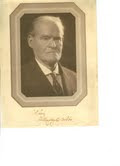


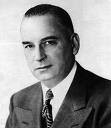



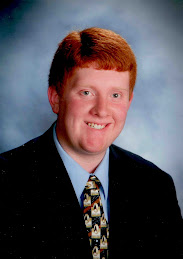
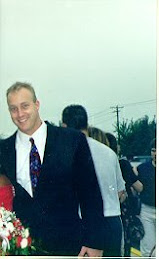
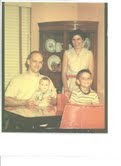
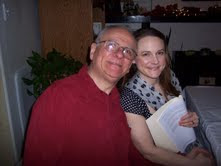
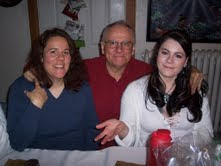

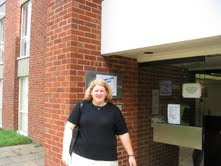
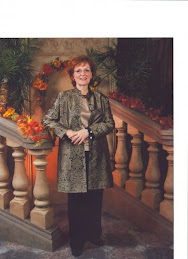




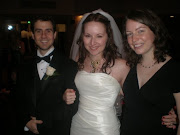

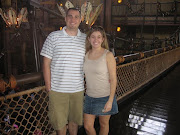

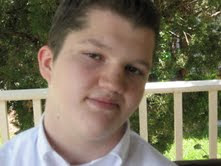
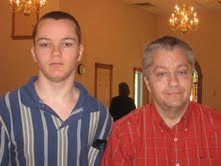
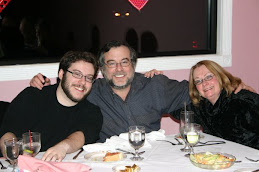



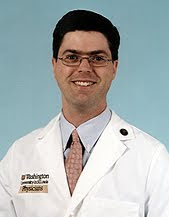
No comments:
Post a Comment